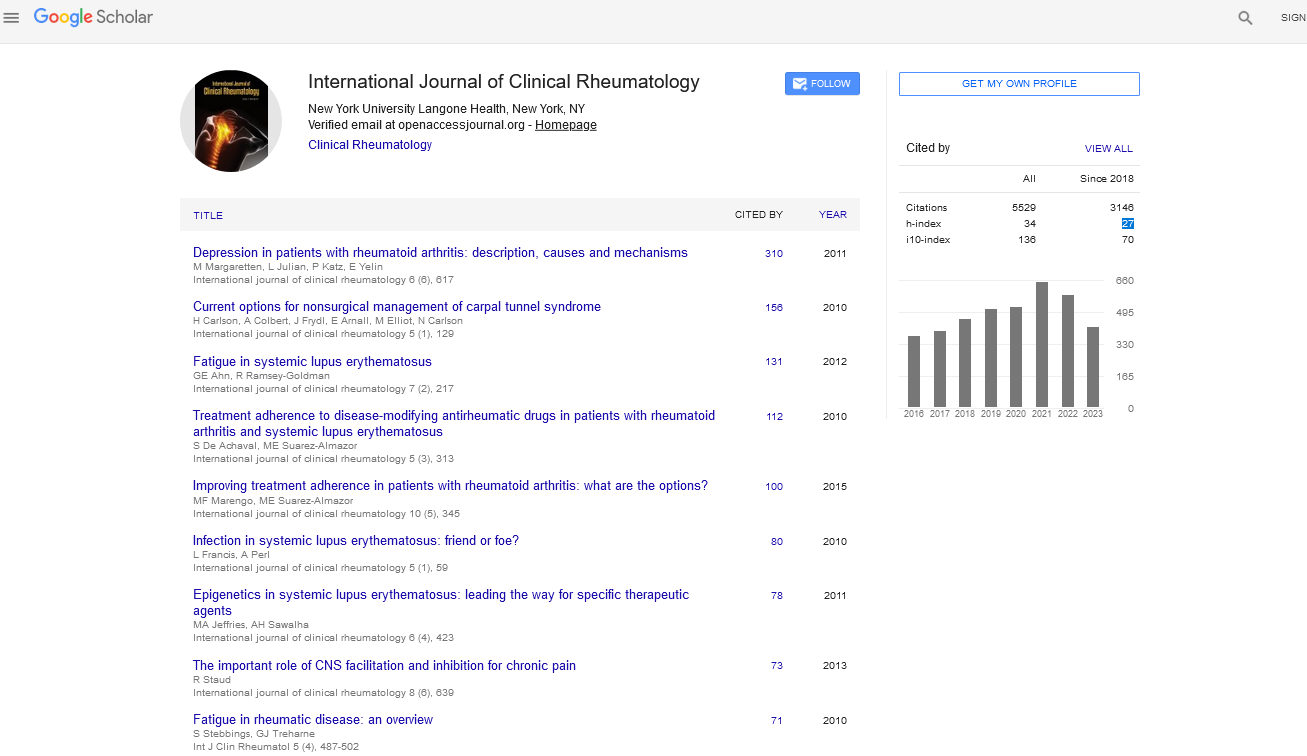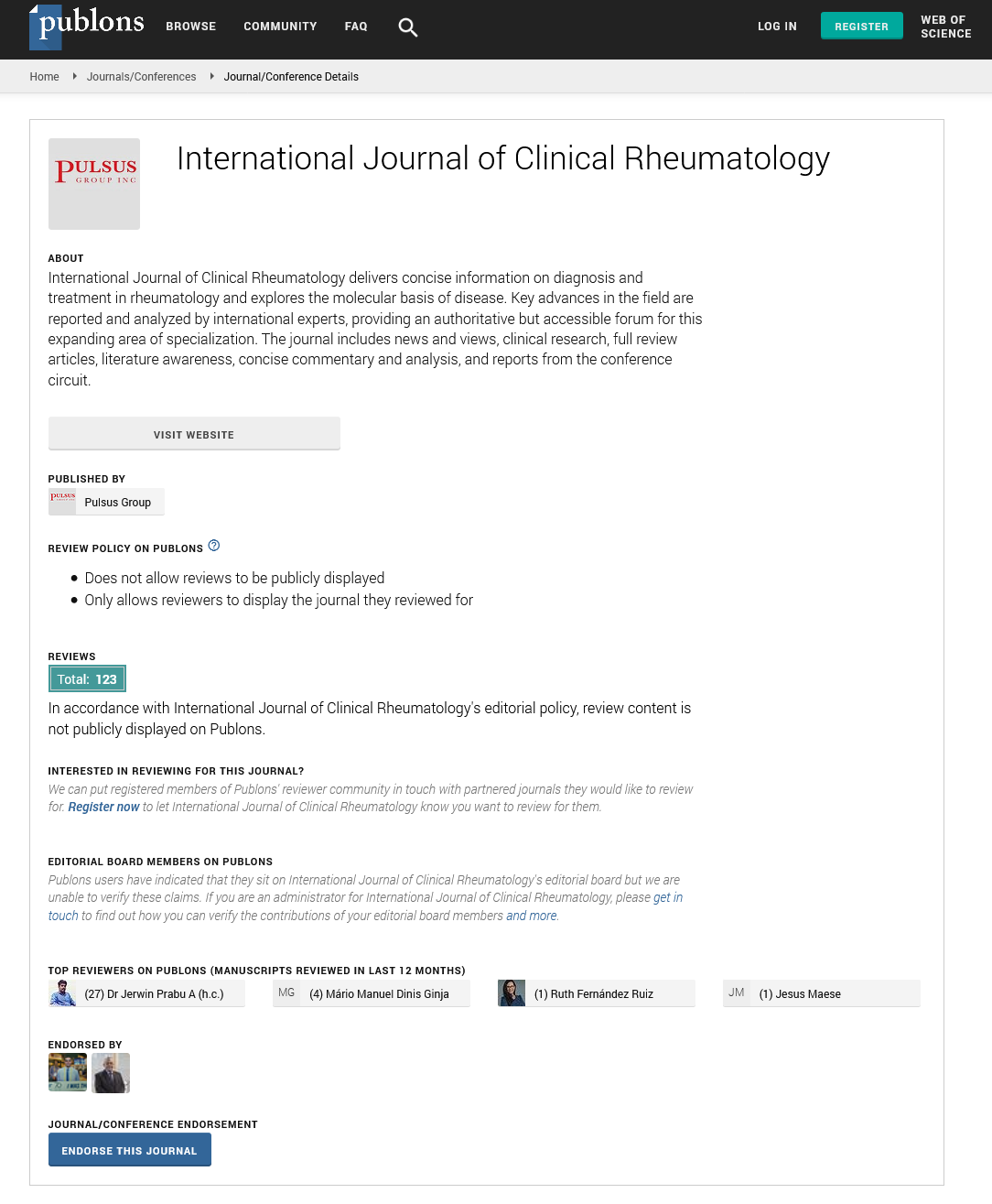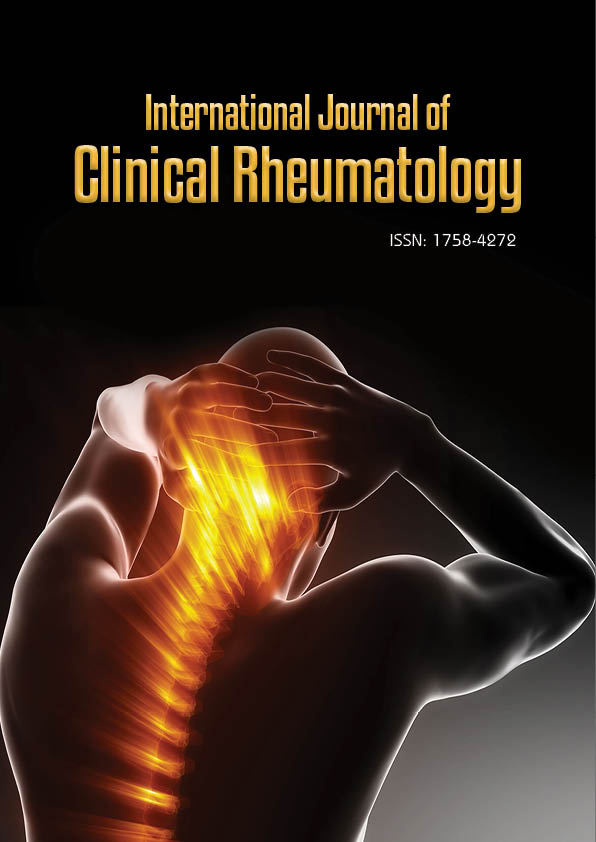Editorial - International Journal of Clinical Rheumatology (2017) Volume 12, Issue 1
Awareness on dietary restriction in case of gout
- Corresponding Author:
- Md Monoarul Haque
Publication Secretary
Bangladesh Physiotherapy Association, Bangladesh
E-mail: monoarmunna@yahoo.com
Abstract
Gout is a rheumatologically oriented metabolic disease usually occurs due to rise in uric acid in the blood by altering dietary intake. We know gout affects about 1% to 2% of the Western population at some point in their lives. It has become more common in recent decades. No up to date data on prevalence of gout in our country is found but my assumption it will be higher because of less awareness on food consumption among people. Evidence suggests that dietary causes account for about 12% of gout and include a strong association with the consumption of alcohol, fructose-sweetened drinks, meat, and seafood. Other triggers include physical trauma and surgery. On the other hand consumption of coffee, vitamin C and dairy products, as well as physical fitness, appear to decrease the risk of gout. Though most of the inhabitants in our country are traditionally not habituated to consume alcohol and fructosesweetened drinks but ingestion of meat (beef, mutton, chicken, duck, and buffalo) is common. Acute gout attacks can be managed/controlled through diet, a healthy lifestyle and weight management. A gout-friendly diet usually aid to control uric acid levels in the body while promoting overall health status. So we have to emphasize on body mass index. American College of Rheumatology suggests intake of excessive amount of sea food, red meat, alcohol, and sugary beverages is prone to develop gouty attacks because these food contain high purine. Actually more age-specific, sex specific, country specific research on gouty diet is needed because dietary habit varies region to region, society to society, community to community, urban-rural difference. Most of the times medical practitioners give priority on medication during consultation with patients but diet has significant/immense role if we want to control or prevent gout and to achieve this vigorous awareness campaign can be attempted, promoted as well as instituted. Seminar, symposium, round table dialogue on this issue can be carried out both urban and rural area. School curriculum can add this information. Early intervention is always better than late.


